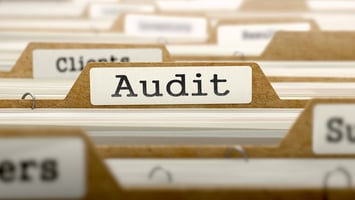Labor Law Training: How to Effectively Manage Your Workforce
What is Conflict of Interest?
 The key to success in any organization is trust—trust between management and employees, trust among employees, and trust between our company and its customers. That's why conflicts of interest are such a serious matter. They can erode trust and damage relationships.
The key to success in any organization is trust—trust between management and employees, trust among employees, and trust between our company and its customers. That's why conflicts of interest are such a serious matter. They can erode trust and damage relationships.
A conflict of interest (COI) is a situation in which an individual or organization is faced with the potential for a clash between personal interests and professional responsibilities. Everyone has different priorities and interests, but when they come into conflict, it can be difficult to make impartial decisions.
A conflict of interest occurs when an individual's private interests interfere with the official duties of that person in his or her capacity as a public servant. In order to protect the public interest and maintain the trust and respect of the people they serve, it is important for all public servants to avoid conflicts of interest in their professional lives.
There are a number of different types of conflicts of interest that can arise in the workplace, but the most common are personal, financial and family interests.
Personal Interests
An employee's personal interests can create a conflict of interest if they interfere with the performance of his or her official duties. For example, if an employee is offered a job with a competitor while he or she is still working for the organization, that would be a conflict of interest.
Financial Interests
An employee's financial interests can also create a conflict of interest. For example, if an employee has investments in a company that is seeking to do business with the organization he or she works for, that would be a conflict of interest.
Family Interests
Family interests can also create conflicts of interest. For example, if an employee's spouse works for a company that is seeking to do business with the organization, that would be a conflict of interest.
It is important to note that not all conflicts of interest are illegal. However, it is still important for employees to avoid these conflicts of interest, regardless of whether they are legal or not. The reason is simple: even though a conflict is considered ethical or moral, it may still be damaging to the organization's reputation and create the appearance that an employee is acting improperly in his or her capacity as a public servant.
Employees should also be aware of when they may not be in a conflict of interest, but their actions may still appear to be unethical. For example, if an employee's spouse has a birthday and the organization is holding a raffle for charity, it would be acceptable for that individual to purchase tickets. However, it would be best practice for him or her to avoid purchasing tickets if the organization is also holding an event for a personal friend of his or her spouse.
Gifts and entertainment are another common source of conflicts of interest. Public servants are expected to be impartial when they are on the job, so receiving gifts or offers of entertainment can create the perception that they are not acting in the best interests of the public. As such, employees should avoid accepting gifts and offers of entertainment from individuals with whom they do business (including suppliers and clients).
Other common workplace conflicts of interest include: accepting employment or loans from vendors; using government equipment for personal use; and disclosing confidential information that may benefit friends, family members or themselves. Employees should avoid all situations that may create the appearance of impropriety, since even an ethical conflict of interest can damage their organization's reputation.
In general, public servants should avoid situations that create a conflict of interest. However, if they do find themselves in a potential conflict of interest, employees have several options. They can ask for guidance from their supervisor or the board members of their organization, speak with a government ethics expert to see if it is possible to address the conflict outside of the workplace, or resign from their position.
No matter what route an employee chooses to take, it is important to remember that conflicts of interest should always be avoided in order to maintain the trust of the public.
Why the need for training your employees on conflict of interest?
Employees with financial interests, family interests and those who have been offered gifts from vendors should avoid situations that could create a conflict of interest. They should also be aware of other common sources of conflicts of interest: accepting employment or loans from vendors, using government equipment for personal use and disclosing confidential information. However, even if an employee does not find himself in a conflict of interest, it is still important to avoid situations that could create the perception of impropriety.
Conflict of interest training can help employees understand what constitutes a conflict of interest, how to identify potential conflicts and how to avoid them.
How can you address it?
A number of tools are available to help managers identify potential conflicts of interest and resolve the issues before they become problems. Some options include: Conflict-of-Interest Disclosure Forms; requiring employees to disclose income or assets that may create a conflict of interest; establishing firewalls between different divisions; and non-negotiable conflict of interest waivers.
The organization may also wish to establish a process for identifying and addressing conflicts of interest. This can be done through: orientation sessions; online learning modules; ethics awareness campaigns; and one-on-one education and coaching sessions. A third option is to create an 'Ethics Point Person' who can help employees resolve ethical conflicts.
No matter what approach is taken, it is important to remember that a conflict of interest can be damaging to an organization's reputation. Employees should be trained on how to identify and avoid potential conflicts of interest in order to maintain the trust of the public.
CLICK HERE to request a free (no commitment) online demo of your desired compliance training topics




